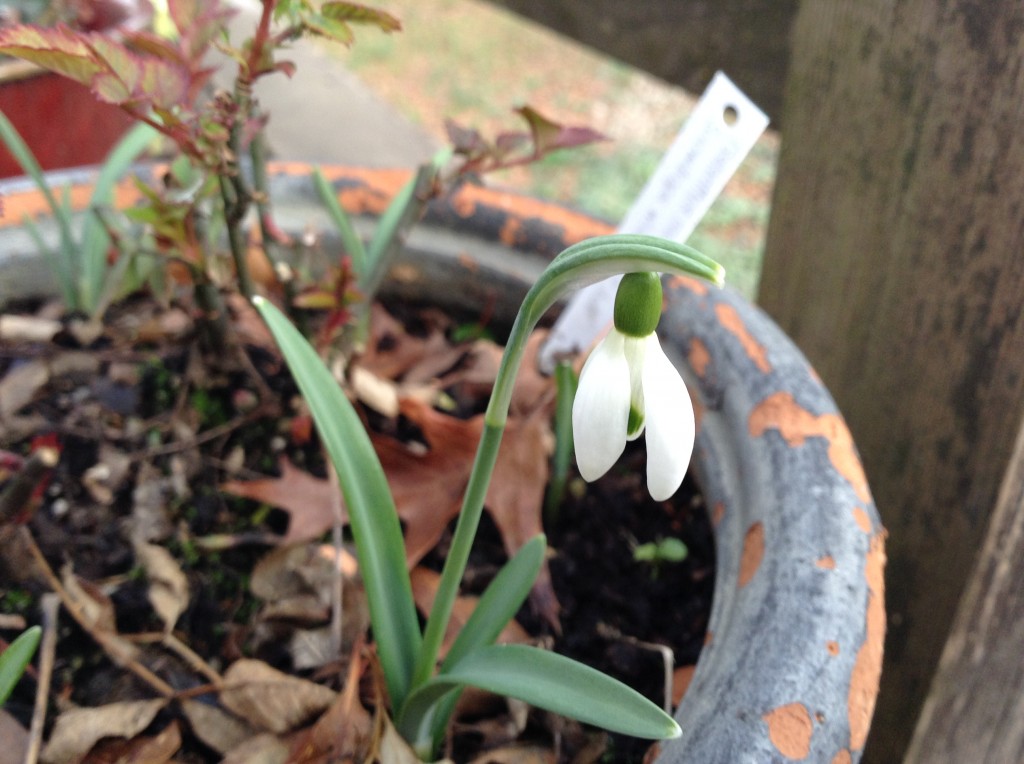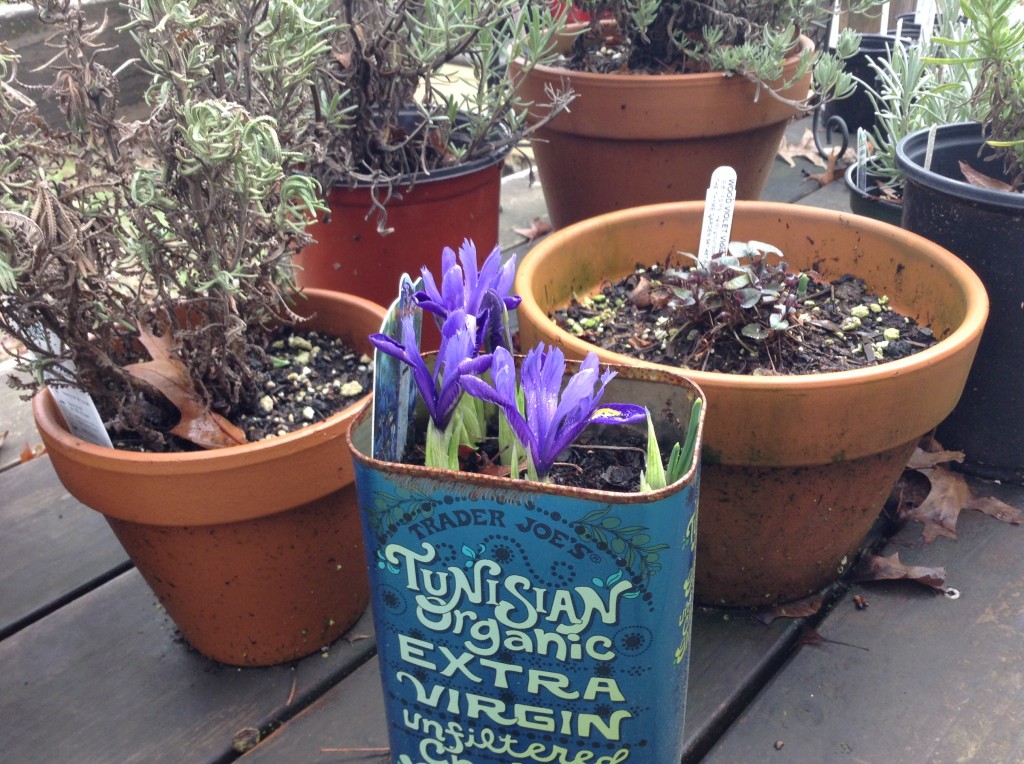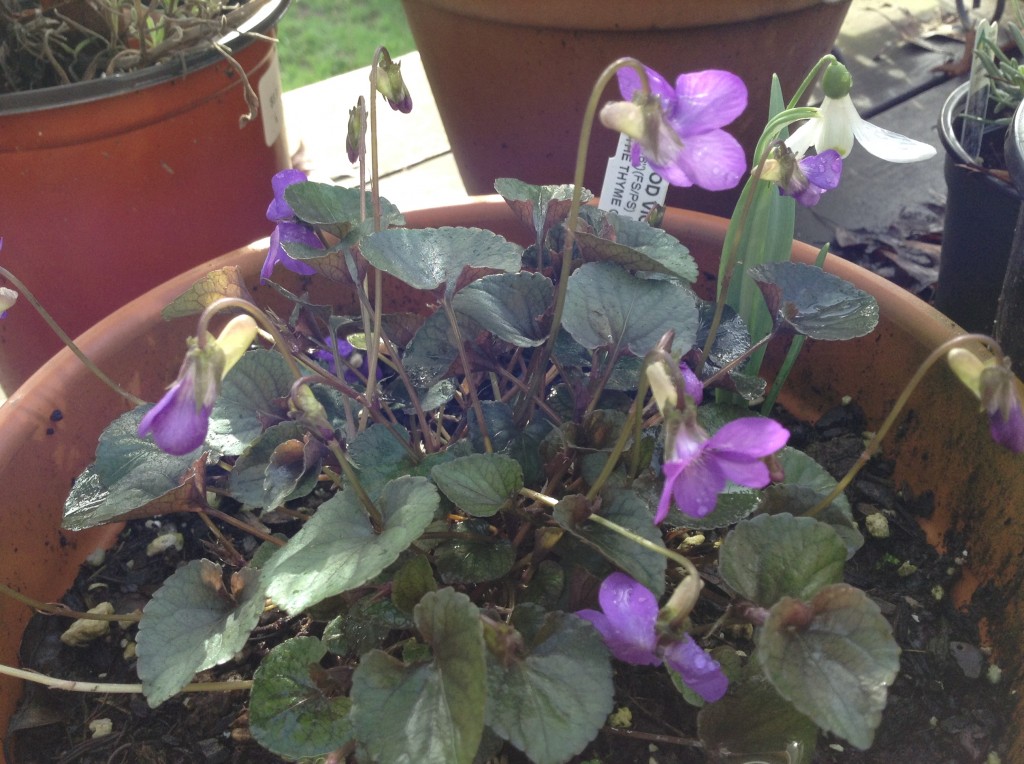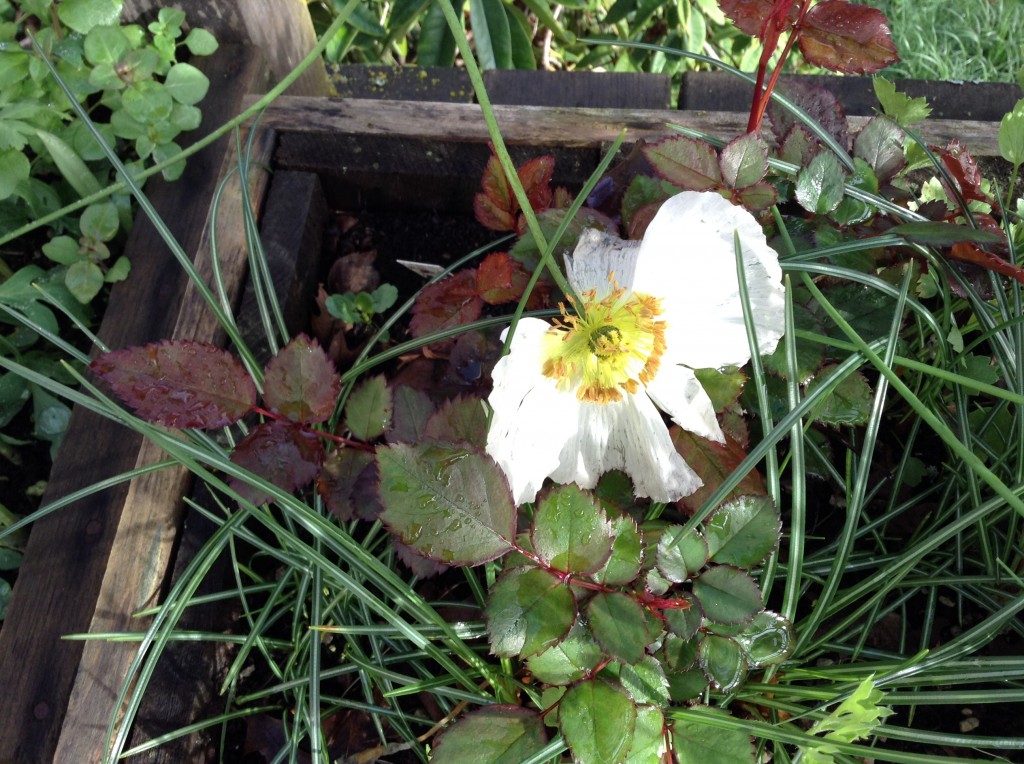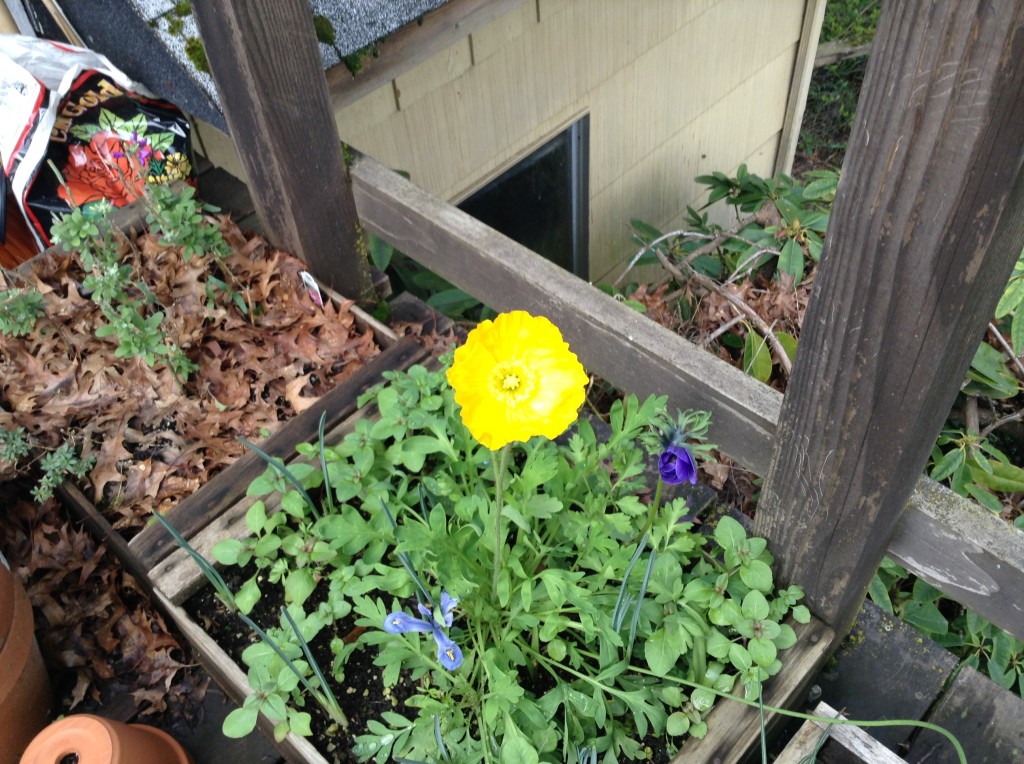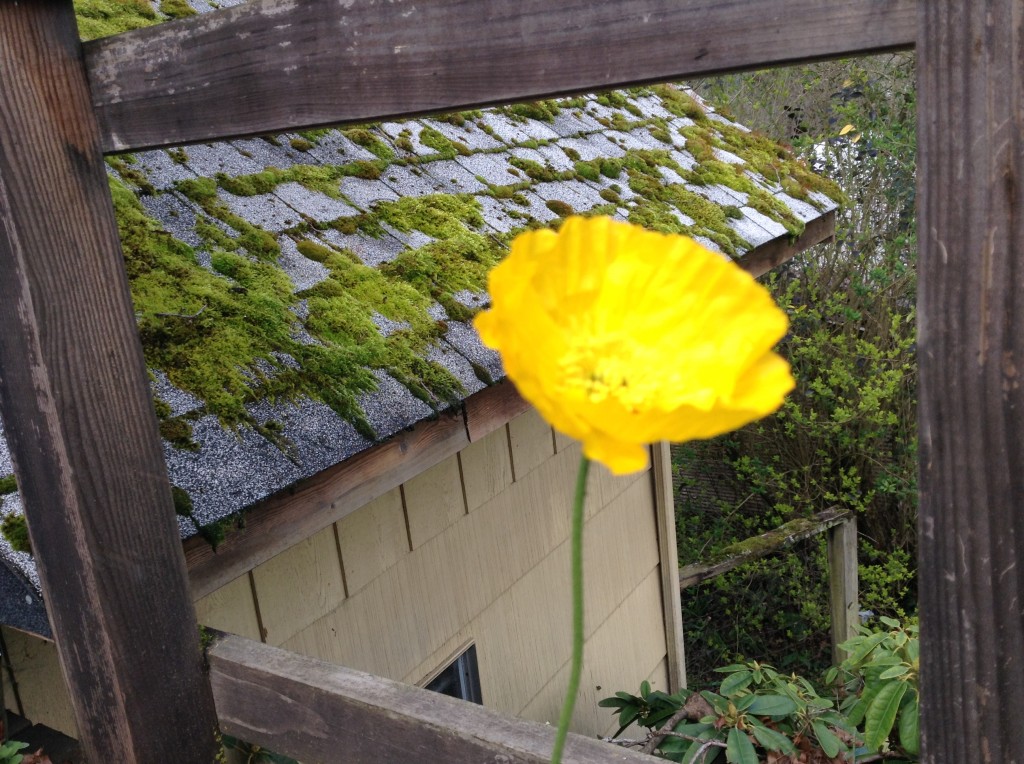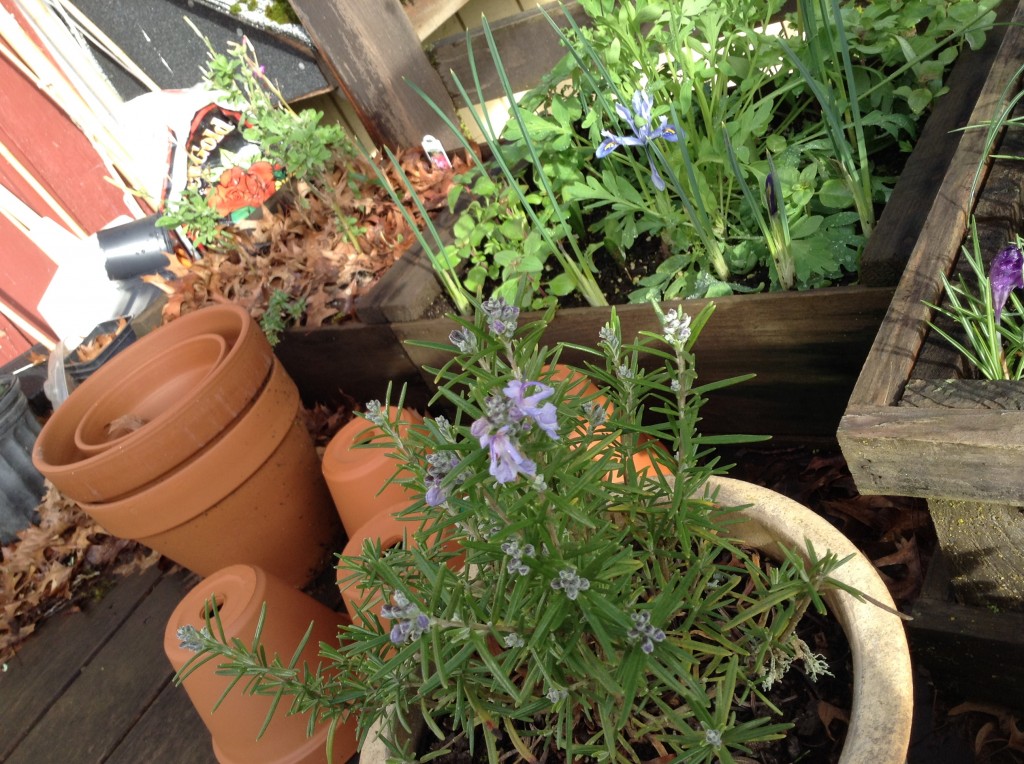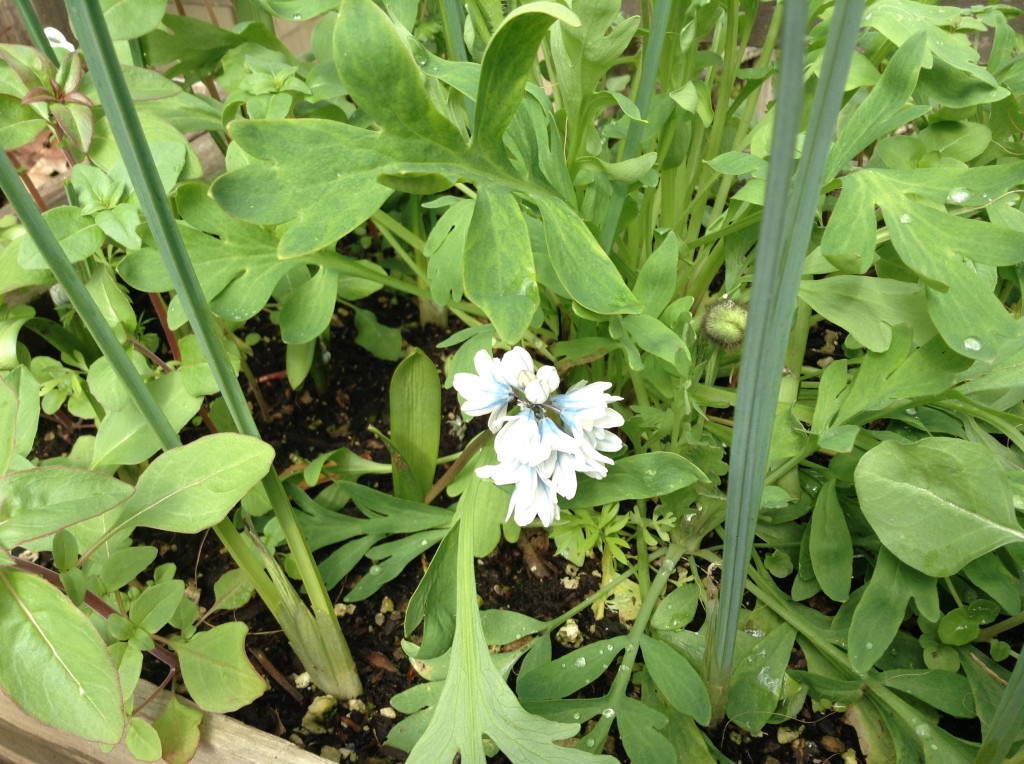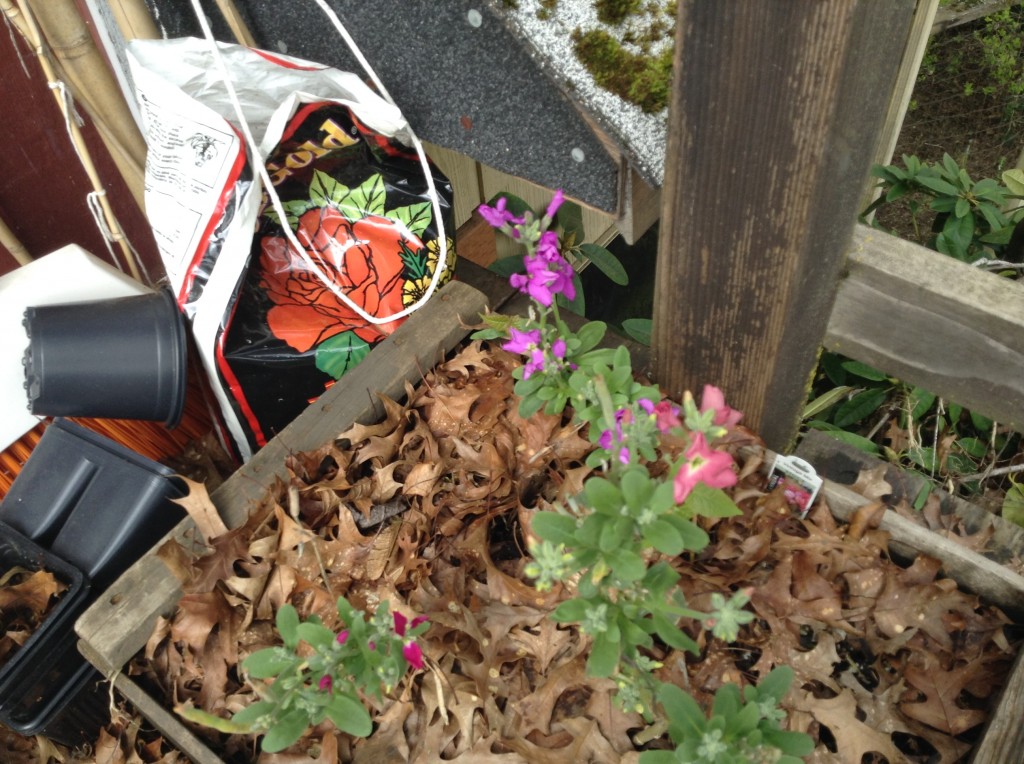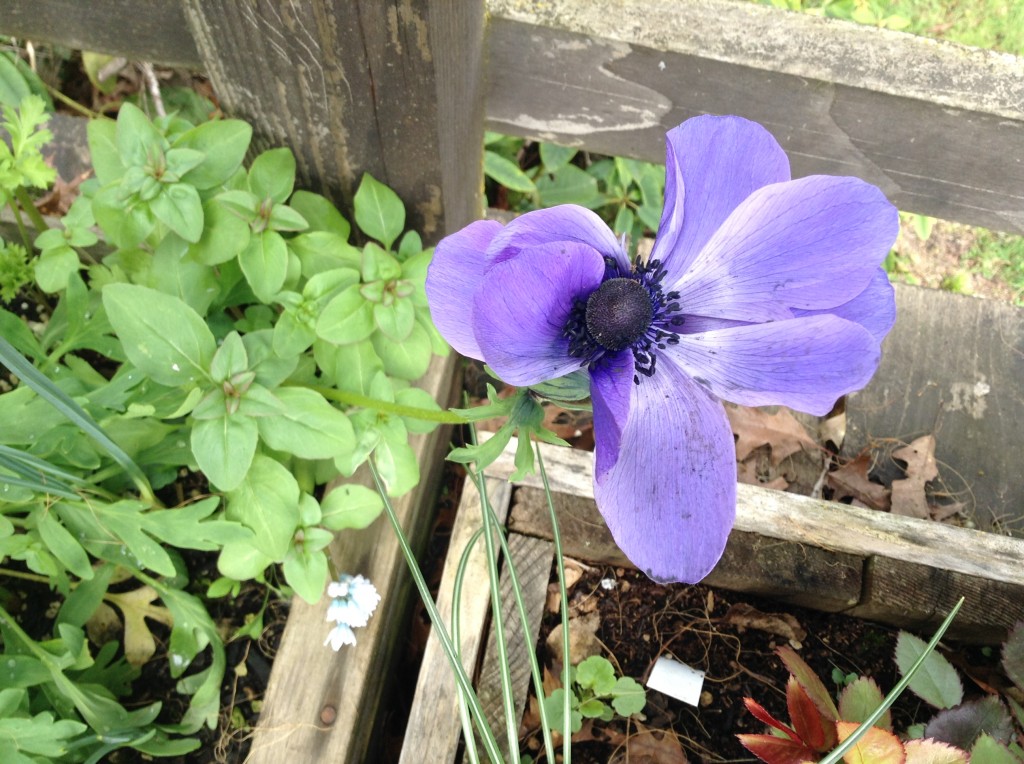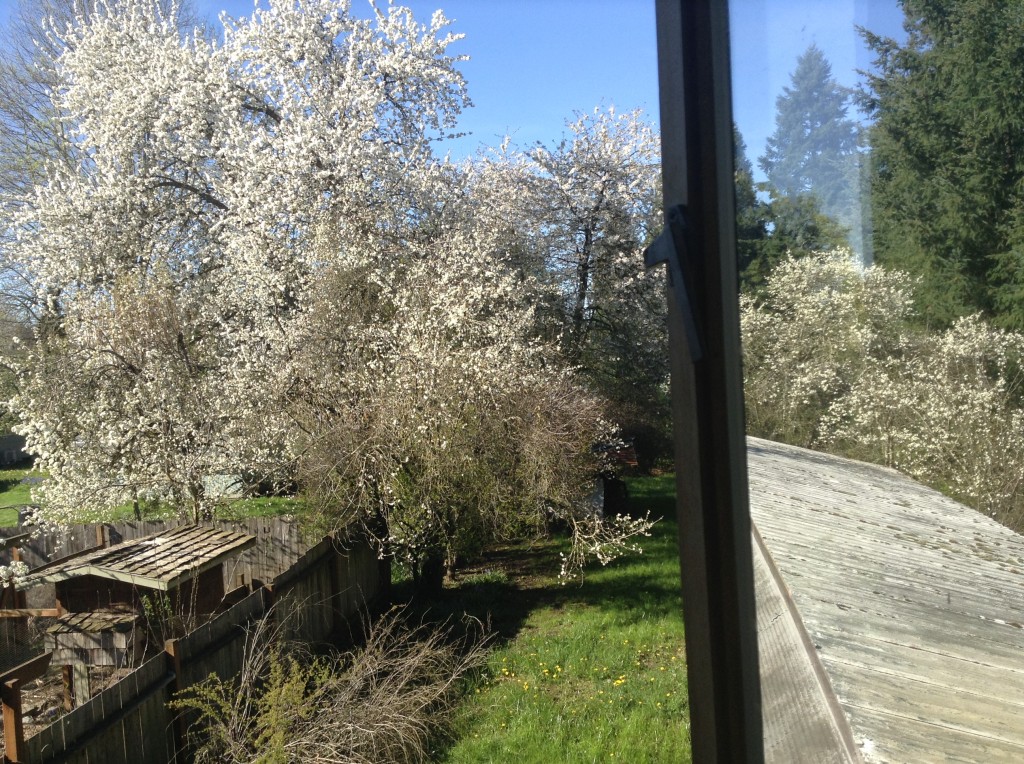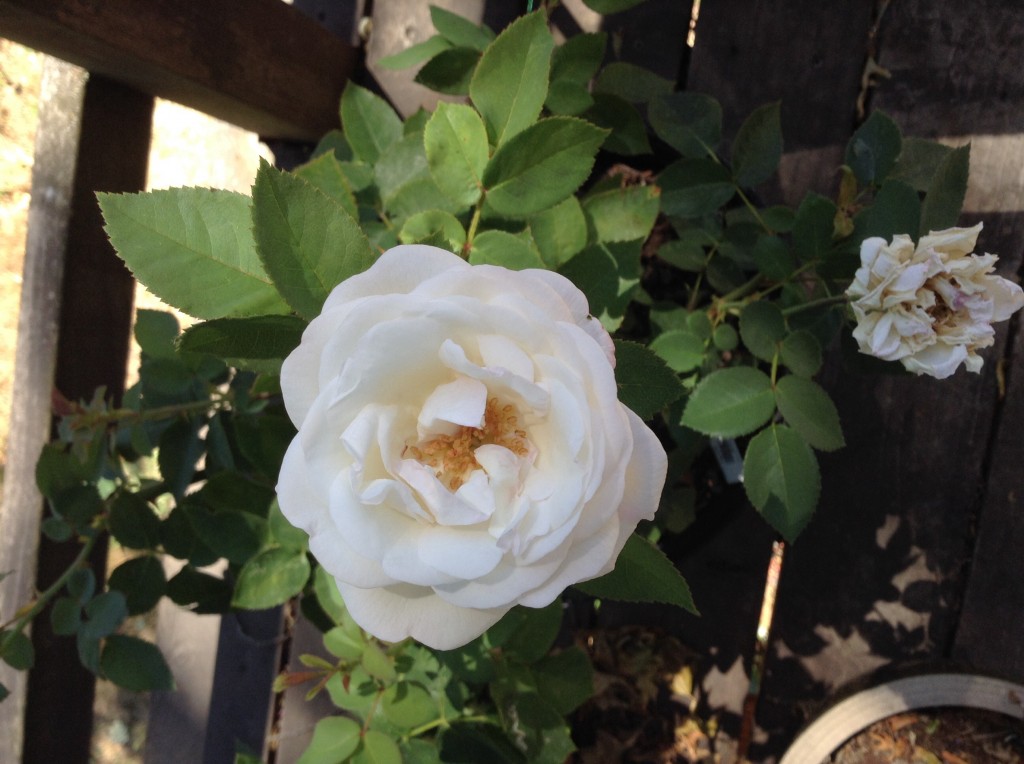Envious, no doubt, of Miss Charlotte Brontë’s harrowing ordeal as reported in the previous post, Miss Jane Austen did her own thing last night. With my unwitting, careless, stupid aid. That is, I came in from a cigarette or something, washed a few dishes, then noticed Charlotte nosing at the deck door. Which moved. Even from the kitchen I could see it move. Good god, Jeffers, hadn’t you learned your lesson?
So I hurried over to latch it securely. Then noticed Jane wasn’t immediately visible. She tends not to hide as often or effectively as Charlotte. I did a fast reconnoiter of the apartment and down the dark stairs to the bathroom and front door. No sign of the irritating cat. I ventured onto the deck with the not-so-trustworthy flashlight, closing the door securely behind me.
The deck faces east. Beyond the railing on the south side, toward the property’s main house, there’s a stretch of corrugated fiberglass below where the roof over the kitchen slopes down (see photo). Brazen as you please, Jane stood there, looking over her shoulder at her outraged, worried human. I asked her to come to me. Insouciant, she declined: went to investigate the foot-high, foot-deep crevice under the eave. She spent some five minutes poking and sniffing and ignoring me.

I sat down, still making polite requests that she give over being an intrepid explorer. Eventually, Jane made a move toward me. She came through the rail onto the deck. Slowly, carefully, I stood, saying something to the effect of “Jane, oh, Jane, you don’t really want to be out here at midnight, wouldn’t you like to come back inside with me?” Naturally, she wouldn’t. I must have moved too quickly because she darted past me and through the railing on the north side, onto the slope of the roof over the bedroom.
Damned cat. She skittered about a bit up there before becoming fascinated by a disused chimney that I don’t know what it was ever meant to vent. She climbed it! And sat up there another ten minutes.
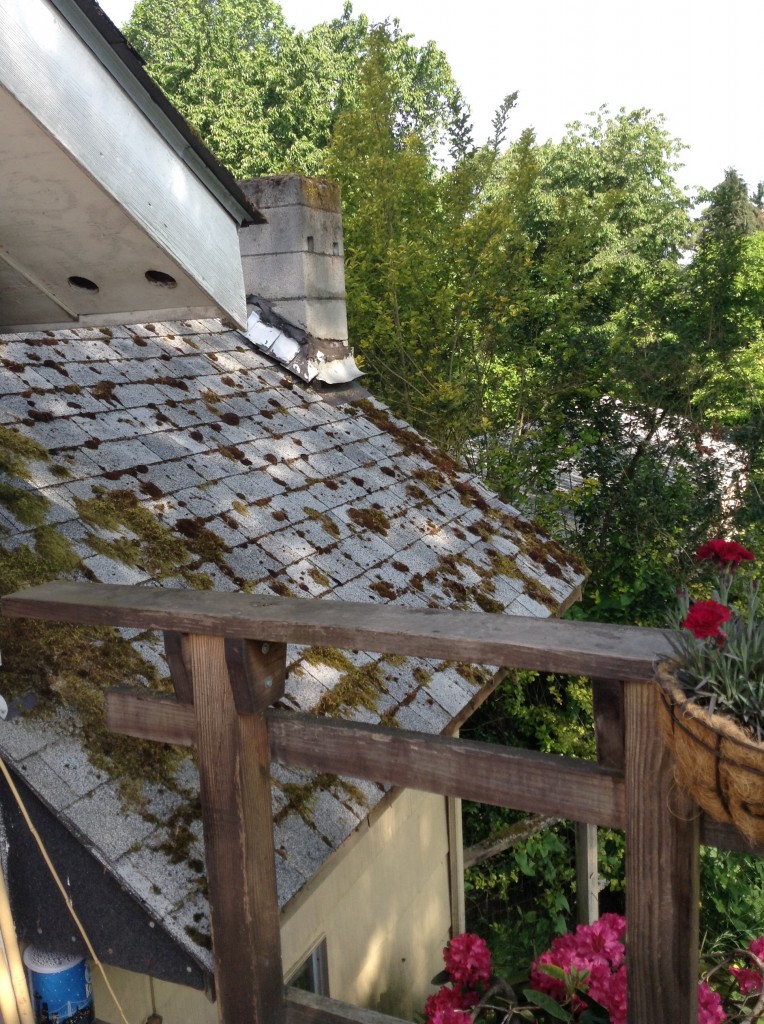
I told her she was wicked. I told her she was not doing my poor heart any favors. I told her I couldn’t handle this kind of shenanigans twice in a week and a half. I told her Charlotte wasn’t actually my favorite, that I loved the two of them equally, and I would be desolate if she didn’t come inside RIGHT NOW.
I looked away. When I trained the flashlight on the chimney again she was gone. A moment later, I heard a thump behind me on the corrugated bit: she’d gone up the roof and around the living room’s big gable, come down on the south side again. I rushed to that railing, calling frantically.
Fruitlessly. Jane gave me a jaundiced eye over her shoulder, then neatly leapt onto the roof of the main house. “Jane!” I called.

The brave adventuress turned her thoughts east, stalking the length of that roof, then south over the peak and out of sight. My heart was going ka-thunk. I needed a cigarette.
She did not reappear for a good long while (probably not as long as it felt to me). Every now and again I’d scan the flashlight over the other house’s empty roof. I talked to her, repeating nearly verbatim entreaties made to missing Charlotte far too recently.
I heard a thump, uncomfortably distant, as of cat feet hitting a hollow surface from some height. From where I stood I could just see a little patch of flat roof over the carport south of my kitchen window. “Jane,” I called, “where are you, what are you doing?”
Like an actress, she moved into the wavering spotlight and glared at me from the carport roof, her eyes making laser beams. “Jane,” I said, “I can’t get to you over there. Won’t you come home?”
Again she turned away.
“Jane,” I said, despairing, “you’re giving me palpitations and I can’t deal any longer. I hope you have the sense not to follow Charlotte’s example and try to get down to ground level but there’s nothing I can do about it. I’m going to fetch some food and water to put out here for you, then go back inside to cuddle Charlotte and weep.”
Water first. I set the bowl down where she could find it, then cast a hopeless glance over the corrugated bit.
Jane stalked casually around the corner.
I said nothing.
She approached. “There’s water right there if you’re thirsty,” I said.
She slipped through the railing, back onto the deck half a yard from me. Furious, I made a grab.
I was going for the scruff of her neck but the stupid animal wouldn’t keep still and what I got was the base of her tail. Oh, did that make her angry! Fearful for my skin’s integrity, I somehow got her scruff with the other hand as she spat and yowled and hissed and flailed with her monstrous claws.
And then the wailing banshee was inside again where she belongs, enraged and (I suppose) terrified. When I dropped her to my mother’s spectacular Persian tree-of-life rug, she couldn’t get away fast enough—dashed down the stairs into the dark, yelling to raise all the devils in hell.
Today she’s fine. Horrid animal.





